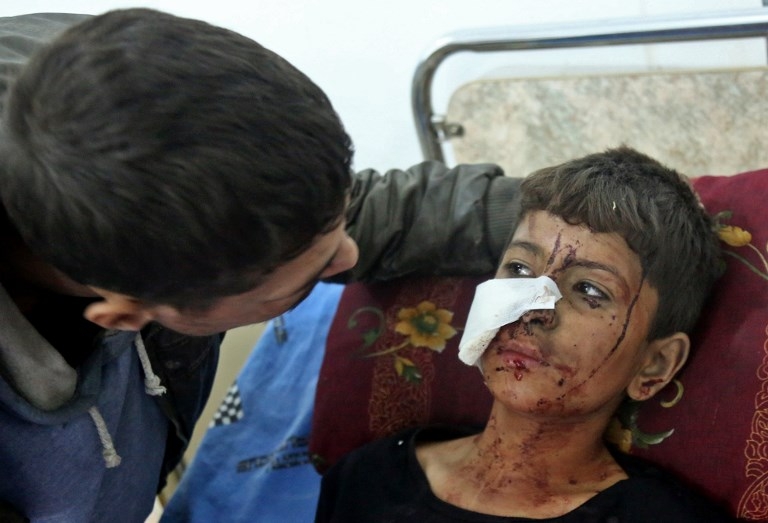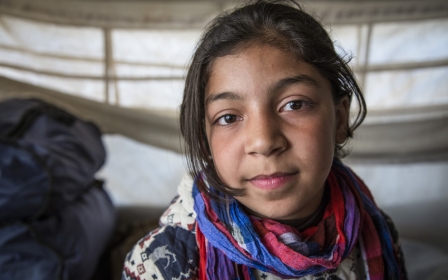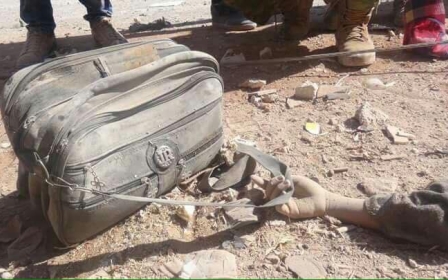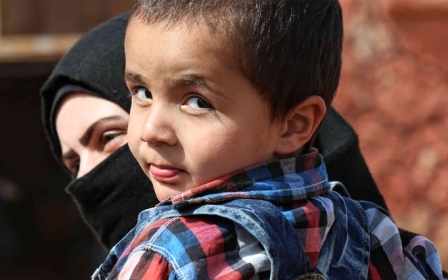Shelling kills children as they leave school in Syria's Eastern Ghouta

Government shelling killed around 10 people, including five children at a school gate, in a besieged rebel enclave near Syria's capital Damascus on Tuesday, a day after a UN aid delivery to the area, a war monitor said.
The shelling also injured 30 other people in the Eastern Ghouta area, the Syrian Observatory for Human Rights said.
Small blue school bags and a tiny pair of shoes lay in a corner, drenched in blood.
Outside the primary school, children stared at the pools of blood staining the concrete ground.
"I was coming out of school and was about to turn into a side street when the shell hit. There were dead people, wounded people," one child told AFP.
The Britain-based Observatory said the ongoing shelling which began Tuesday morning hit the towns of Jisreen, Douma, Saqba, Mesraba, Harasta, Ain Terma, Hazza and Kafr Batna.
"A shell fired by regime troops hit the entrance of a school in Jisreen just as children were leaving it, killing five people including four schoolchildren," Observatory chief Rami Abdel Rahman said.
On Monday a United Nations and Syrian Arab Red Crescent (SARC) convoy delivered aid to the towns of Kafr Batna and Saqba.
A tightening siege by government forces has pushed people to the verge of famine in the eastern suburbs, residents and aid workers said last week, bringing desperation to the only major rebel enclave near the Syrian capital.
Syrian state television on Tuesday said shells had also hit parts of government-held Damascus, injuring at least five people.
In July, Moscow and rebels in Eastern Ghouta signed a deal to make the area a "de-escalation zone". The agreement raised hopes of open crossings and aid flows.
The aid organisation International Rescue Committee said on Monday the de-escalation zone agreements with rebel areas across Syria were failing to protect civilians.
"The safety of civilians has not improved with the establishment of these so-called de-escalation areas. With so many armed groups not covered by ceasefire agreements, we have even seen periods of increased aerial bombardment," IRC's Middle East Director of Public Affairs Tom Garofalo said.
Stay informed with MEE's newsletters
Sign up to get the latest alerts, insights and analysis, starting with Turkey Unpacked
Middle East Eye delivers independent and unrivalled coverage and analysis of the Middle East, North Africa and beyond. To learn more about republishing this content and the associated fees, please fill out this form. More about MEE can be found here.




